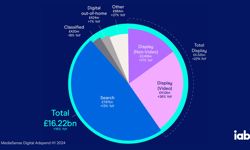
Back at the end of September, Apple released the latest update to its mobile and web operating system, called ios15. Available to all Apple devices, it has proved noteworthy largely due to the effects it will have on email specifically. So, what changes has Apple actually made and why should we care?
To answer the second question first, we should care because Apple Mail accounts for just under 50% of the email market. And on top of that, according to Sparkpost, 97% of people who have already updated to ios15 have opted into the changes, so adoption is likely to be high.
In terms of the changes themselves, Apple has altered the way that it handles email on behalf of its users. With ios15 and specifically Mail Privacy Protection and Private Relay, Apple is masking certain data previously collected when users receive, open and interact with their email. This includes assigning each user a generalised IP address rather than passing on the user’s actual IP address which has happened up until now. Apple will also hide other information such as the specific Apple device the user is using as well as encrypt the URL of the website users are going to when they click on a link. These changes are designed to protect privacy by preventing websites from building up a profile of the user based on their location and browsing history. So far so good. Masking a user’s actual IP address, and therefore location, brings Apple, finally, up to par with Gmail and Yahoo who have done the same for years. Apple is actually providing slightly more granular data than Google or Yahoo – think country-level rather than continent level. Also preventing marketers and technology companies from building detailed cross-site and cross-device profiles of users is broadly in line with the spirit of most data protection legislation.
However, more importantly, and more controversially, with these changes, when a user receives a new email from a publisher, Apple will pre-download all content ready for when a user actually open the email. The effect of this is two-fold. Firstly, it will appear to email senders that all their emails sent to users with Apple devices have been opened irrespective of whether they really have or not. Consequently, open rates and by extension click through rates – long-relied upon metrics for measuring email performance – will be significantly less accurate. By our estimate open rates would be inflated by c.110% as a worst case, click through rates reduced by c.45% and their value as a metric similarly reduced. And secondly, email functionality which relies upon time of open to provide users with up-to-date, personalised and relevant content will no longer work as effectively. This includes things like weather updates, sequential messaging or other journey-based marketing.
Now few people would take issue with changes designed to protect user privacy. However, in this case, Apple is essentially making decisions on behalf of its users in the name of privacy. Ironically, these decisions are likely to be creating new data points (not even stored by Apple itself) around what content their users have been sent even if the user had no intention of ever opening that email. It also means that Apple is deciding, again on its users’ behalf, that they would not want their emails to contain personalised and potentially more relevant, engaging content based on when the email is opened.
Apple is essentially making decisions on behalf of its users in the name of privacy.
Monetisation implications
From a newsletter monetisation perspective, these changes will have little impact on advertising campaigns sold on a sponsorship, CPC or conversion basis. They will, however, mean that publishers need to rethink how they sell CPM campaigns given that impressions are triggered by email opens which, for Apple Mail, will be greatly inflated moving forward. There are a number of ways around this such as using the open rate on non-Apple mail as a proxy and applying this to Apple traffic to create a synthetic overall CPM. It will in any event require thought and discussion and complicate what was until now a straightforward cost model.
On a more positive note, publishers can view these changes as an encouragement to double-down on certain good behaviours as well. As mentioned, engagement metrics such as clicks and conversions are unaffected by ios15 and are clearly a more effective measure of success for many advertisers than opens or impressions. Publishers with performance advertisers should focus on offering campaigns using these performance-based metrics.
The other area unaffected is a publisher’s ability to provide 1st party data targeting opportunities to their newsletter advertisers. If publishers needed any additional encouragement to focus on their 1st party data collection, Apple has just provided it and both publishers and advertisers alike will be the benefactors in terms of the additional targeting capabilities more 1st party data will bring to newsletters.
So, key takeaways:
- The sky is not falling in – remember 50% of all email is totally unaffected by ios15
- There are tactics which can be employed to minimise the effects to any email monetisation strategies
- Focusing on true engagement metrics and 1st party data collection will actually strengthen your ability to monetise your newsletters
Publishers can view these changes as an encouragement to double-down on certain good behaviours.

About us
Passendo is the leading European platform commercialising newsletter inventory. Founded in 2016 by two digital advertising pioneers, our award-winning email ad server and SSP provides value for publishers and advertisers worldwide, with over 4,000 premium publishing house newsletter inventories across the world. Partnering with some of the world's largest media publishers, we help them activate new incremental revenues in an existing and untapped media channel – in-email advertising – reaching new audiences to unlock new and exciting opportunities.
Contact details:
Name: Anthony White, Head of UK Publisher Development
Tel: +44 (0)7905 234788
Email: aw@passendo.com
LinkedIn: linkedin.com/in/anthonywhite2
Website: passendo.com










